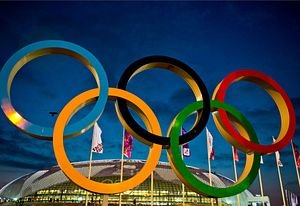Since 1996, when Kyrgyzstan first competed as an independent country, the small Central Asian nation has only brought home four Olympic medals. Well, make that three.
Thursday, the Court of Arbitration for Sport, an international quasi-judicial body established to settle disputes related to sport, announced that its Anti-Doping Division (CAS ADD) decided to disqualify Izzat Artykov, a Kyrgyz weightlifter, following a positive doping screen.
The Rio Summer Olympics opened amid a months-long doping scandal centered on, though not exclusively involving, Russian athletes. With heightened attention to the issue of performance enhancing drugs, the International Olympics Committee (IOC) delegated its power to make decisions on doping cases during the Rio games to CAS. At every Games since 1996 a CAS court has been established to handle legal disputes during the Games, but this is the first year a court was specifically established to manage doping issues.
Artykov won a bronze medal on day four of the Rio Games in the men’s 69 kg weightlifting contest. The medal was Kyrgyzstan’s first of 2016 games and much celebrated at home.
Not only was Artykov to be given the title “Honored Master of Sports of the Kyrgyz Republic” but he was to receive a lifetime stipend for bring home the bronze: 15,000 som (about $218) a month in addition to a scholarship of 45,000 som (about $655) for four years and a one-time award of 3.5 million som (about $51,000). His trainers and coaches were also to be given monetary awards.
According to the CAS ADD, Artykov tested positive for a performance enhancing substance and as a result “his medal is forfeited and he is excluded from the Olympic Games Rio 2016.” Further sanctions will be the responsibility of the International Weightlifting Federation, but it’s reasonable to assume he’ll be suspended from international competition for a few years.
The drug Artykov tested positive for? Strychnine.
Yes, strychnine, better known for its use as a poison. It is colorless and bitter and if ingested causes muscle convulsions. If taken in too great a quantity, strychnine will ultimately kill a person via asphyxia.
In the late 19th century it was used as a performance enhancing drug, viewed as a stimulant because of its convulsive effects. If it didn’t kill the user, that is.
In 1904, American marathoner Thomas Hicks ran his way to gold at the Olympics held at the St. Louis World’s Fair using strychnine. Hicks actually finished second, but the race winner was later disqualified after it was revealed that his coach had picked him up after the ninth mile and drove him to within five miles of the finish line. Hicks on the other hand, flagging in what was said to be oppressive heat, was treated to a milligram of strychnine and a glass of Remy Martin brandy. He was given a second dose of strychnine “to give him a semblance of speed and to get him to the finish,” a trainer later said.
Needless to say strychnine was eventually banned.
The pressure to bring home a medal is immense, no less so because Kyrgyzstan does not have many, and the rewards for doing so are great: pride, fame, money. We’ll see what Bishkek’s response to the disqualification and medal revocation are, but it’s sure to sour further the 2016 Games, which are shaping into a tale of near misses for Kyrgyzstan. The country’s Aisuluu Tynybekova lost the bronze medal bout in women’s 58 kg freestyle wrestling to India’s Sakshi Malik and was judged harshly by Kanat Amankulov, the director of Kyrgyzstan’s State Agency for Youth, Physical Culture and Sport, for “making a mistake” and losing.

































